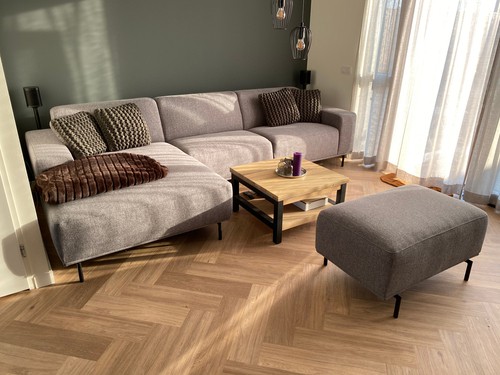
Pros and Cons of Vinyl Flooring – Vinyl flooring is a common kind of floor covering that is very durable and can last a long time. It’s also easier to take care of than hardwood or linoleum, so it’s cheaper in the long run.
Vinyl flooring comes in many different styles and patterns, too, so you’ll have no problem finding one that matches the decor of your home.
Table of Contents
Pros of Vinyl Flooring
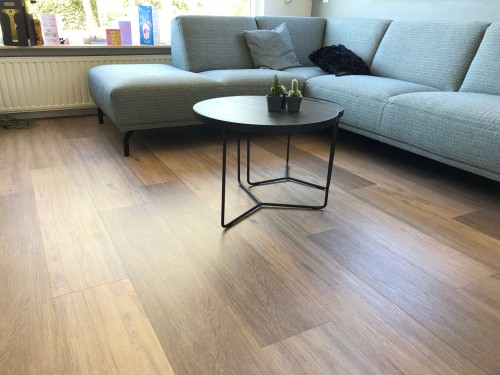
1. Waterproof
One of the great things about vinyl flooring is that it’s waterproof, so it doesn’t get stained as easily as other floors. If you’ve ever tried to clean up a spill on an untreated wood floor, you know how hard it can be. Vinyl flooring is waterproof because the top layer is a vinyl coating that is impervious to liquids.
If you spill something on it, all you have to do is wipe it up with a cloth. Vinyl flooring also doesn’t warp or crack like wood floors can, so it’s a good choice for kitchens and bathrooms. Therefore, if you’re looking for a waterproof flooring option, vinyl is one of the best options.
2. Easy to Clean
Because it’s waterproof, cleaning up spills on your vinyl floor is incredibly easy – much easier than dealing with other floors. You can simply wipe up any liquid without damaging the flooring underneath. Regular sweeping, mopping and vacuuming are all you have to do to keep your vinyl flooring in top condition.
3. Low-Maintenance Flooring Option
Because of its waterproof surface, it doesn’t require a lot of maintenance to keep the condition of a vinyl floor good. All you need is an occasional dusting or sweeping with a soft-bristled broom to keep it looking great.
4. Variety of Styles and Patterns
The next great thing about vinyl flooring is that you can find them in a variety of styles and patterns. Vinyl flooring comes in many different styles, so there’s sure to be one that fits the decor of your home.
You’ll easily be able to find vinyl flooring that matches your favorite color, or you can choose a contrasting pattern. The options are pretty much endless when it comes to finding the right style for your vinyl flooring.
5. Fire Retardant Vinyl Flooring
It is also possible to find vinyl flooring that is fire retardant, which makes it a good choice for bedrooms and living rooms. It’s more expensive than non-fire retardant vinyl flooring, but it is a good option if you want to protect your home from fire damage.
6. Inexpensive Flooring Option
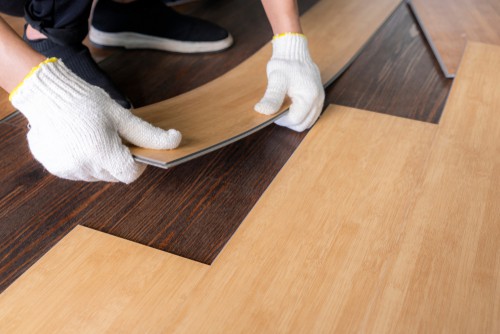
Vinyl flooring is generally inexpensive, which is another reason it’s popular. However, just because the price of vinyl flooring is relatively low doesn’t mean that you have to sacrifice quality. Vinyl flooring can be just as durable as hardwood or other types of floor coverings that are considered more expensive.
7. Easy to Cut and Install
Vinyl flooring is also very easy to cut. All you need are a few simple tools, including a utility knife and tin snips, to install vinyl flooring in any room of your home.
The ease of installation is another reason why vinyl flooring is a popular choice. The whole process can be done by one person, so you save money on labor costs as well.
8. Eco-Friendly
Finally, vinyl flooring is eco-friendly because it doesn’t involve the use of any harmful chemicals when it’s manufactured and processed during production. It’s an especially good choice for people who are concerned about the environment and want to do their part in preserving it for future generations.
9. Variety of Uses
There are many different types of vinyl flooring, so you can choose the one that works best for you. The most common types of vinyl flooring include sheet vinyl and luxury vinyl planks (LVP), which are available in a wide variety of styles, patterns, and colors.
Luxury vinyl tiles (LVT) are similar to LVPs because they come in a large selection of colors and patterns. However, LVT tiles are also available with a textured finish, which makes them an ideal option for kitchens and bathrooms because the texture provides slip-resistance.
10. Resistant to Water Damage
Vinyl flooring is resistant to water damage, so even if it starts in a room that has a lot of moisture, the flooring won’t warp or swell. It’s also dent-resistant and you don’t have to worry about scratching the surface, which makes vinyl flooring an excellent choice for kitchens and bathrooms.
Cons of Vinyl Flooring
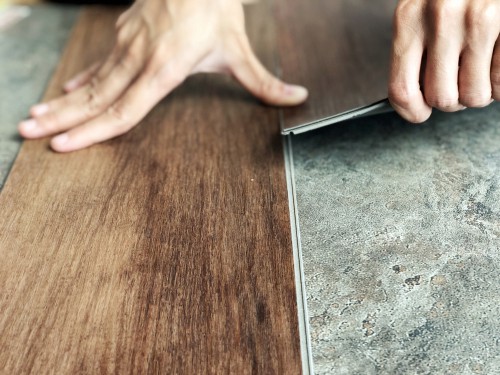
1. It Can Be Damaged Easily
The one negative thing about vinyl flooring is that it can be easily damaged. It marks up fairly easily, which means you’ll have to replace the flooring if there are any deep scratches or dents on the surface.
If you have pets, especially cats with sharp claws that tend to get out of control, you’ll have to be careful about putting vinyl flooring in your home because the cats can easily destroy it.
2. Vinyl Flooring Is Noisier Than Other Floor Options
Another problem with using vinyl flooring is that it tends to be noisier than other types of floor covering. It makes clicking or clattering sound when people walk across the floor, which can be a definite drawback if you’re looking for a quiet room to relax or sleep in.
3. It Can Stain Easily
Vinyl flooring can be stained easily, which is a problem if you have children who tend to spill things on the floor. If they accidentally drop food or drink on the surface of the floor it can leave a stain that’s hard to remove. Plus, oil from your skin and dirt from shoes can leave marks on vinyl flooring, so you’ll have to clean it regularly.
4. Flooring Can Bubble if Not Installed Properly
Another problem is that vinyl flooring can’t be installed in rooms where the temperature varies drastically over several hours, such as an unheated garage, because the change in temperatures will cause it to bubble. Vinyl flooring can only be installed in rooms where the temperature doesn’t fluctuate much and it’s generally not a good idea to install sheet vinyl flooring on concrete floors because it can move easily and become damaged.
Pros and Cons of Vinyl Flooring – Conclusion
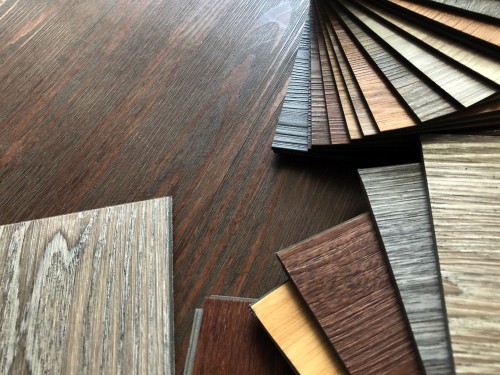
Many homes have some type of vinyl flooring, which is a relatively inexpensive way to cover floors and provide protection from dirt and moisture. With so many pros and cons involved with using vinyl flooring in your home, it’s important to weigh all the factors carefully before you make a final decision on what type of floor covering to use.
